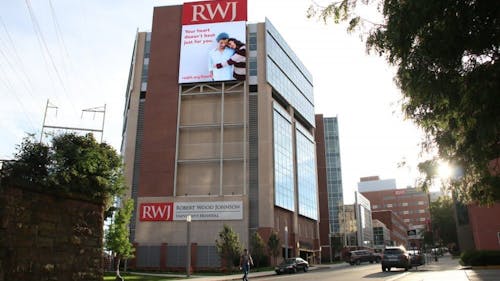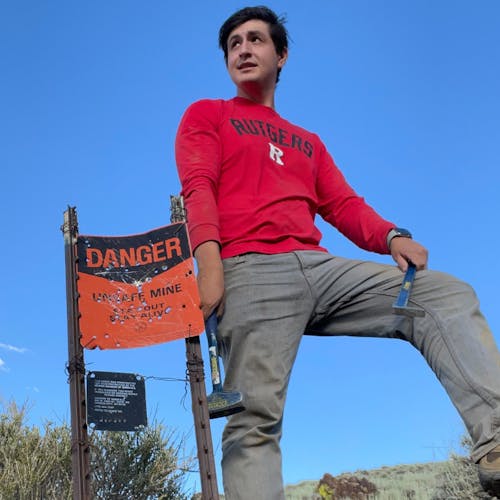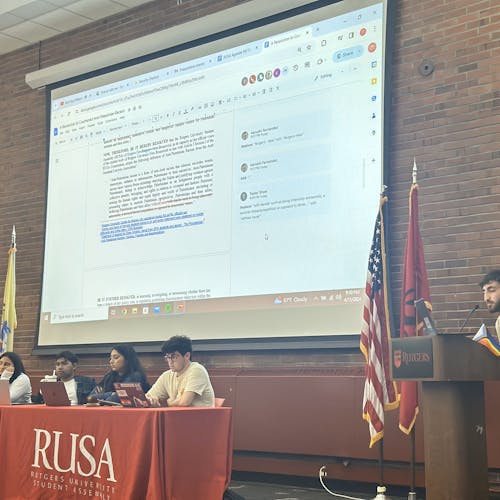Nurses share experiences from front lines of pandemic

Healthcare workers have been working on the front lines of the coronavirus disease (COVID-19) pandemic in order to protect the public. Three nurses from Robert Wood Johnson University Hospital in New Brunswick shared some of their experiences working in the hospital during this time.
"I certainly never thought going into my career that I would be a nurse caring for patients during a global pandemic," said Mary Lynn Dupuis, a critical care registered nurse who has been in the nursing field since the early 80s.
Maureen Madden, a registered nurse and nurse practitioner, and Alison Kegelman, a critical care knowledge professional and nurse manager, both shared Dupuis's sentiment in regard to their current work environment.
"Going through yearly mandatory training and emergency preparedness drills and modules is something that I always thought of as simply that, just mandatory for my file," Kegelman said.
Madden, who typically works in pediatrics, had to adjust to taking care of older patients given that children are not being affected at the same rates nor severity, she said.
"There is a significant decrease in the pediatric census, especially with elective surgeries being canceled," Madden said. "(I) never expected to care for patients who are older than I am."
Dupuis also said that her duties have changed dramatically during this time. She said the biggest change for her has to do with preparation and mindfulness before seeing patients. While the safety of patients is always of concern, Dupuis said worrying about her own health and the health of her coworkers now adds an extra layer.
In addition to these worries, the nurses also have to think about the safety and health of their families at home.
"My family is obviously seriously concerned about my activity in the hospital with respect to working with infected patients," Kegelman said.
Dupuis said the families of all healthcare workers have been affected by the pandemic. She said her husband has issues with his immune system and is at an even greater risk.
"Like many other healthcare providers, I have made the choice to move out of our home in order to protect my family," Dupuis said. "I miss them, I miss my dog and I miss my home … but I know it is the best choice to keep my family safe and is a temporary situation."
Hospital staff are taking strict precautions and preventive measures in order to keep the virus from spreading, Kegelman said.
"(We are) minimizing the number of staff members and the time spent in direct care whenever possible, donning prescribed PPE (personal protective equipment), limiting visitation and restricting visitors to only the patient room," she said. "The work environment is somewhat stressful in that we are all highly conscious of our hygiene practices and protecting ourselves."
Madden said that staff are anxiety-ridden with the increased stress of the situation and their changing responsibilities.
"The worry and fear is palpable," Dupuis said. "I see coworkers sitting in their cars before the shift in prayer and meditation. There is less giggling and animation among the staff."
Dupuis said she loves being able to provide nurturing, compassionate care to patients, but now isolation with limited contact and interaction is the new normal.
Despite the obstacles, the nurses are adjusting in order to get things done and working together as a team, Madden said. Kegelmen said she did not think it was even possible for the staff to show more support to one another, but said their cohesiveness and strength are unbelievable during this time.
"I have always known the importance of my job, but this has reaffirmed the importance of nursing and the impact that a nurse can make on a patient's and family's life," Dupuis said. "Nurses have celebrated birthdays, milestones and recoveries with patients, as well as being the only person present for the end of a patient's life."
The nurses all agreed that this pandemic will leave a lasting impact on healthcare practices both inside the hospital and in the public.
"I am hopeful that this pandemic will lead national healthcare administration to be more proactive and prepared for this situation," Dupuis said. "Likewise, I am fearful that this pandemic will deter young people from pursuing careers in healthcare."
Kegelman said she hopes the pandemic will cause people to be more mindful of hygienic practices and preventative care.
The nurses said they did not know the damage that COVID-19 could cause until it actually started spreading here.
"Having the experience of 9/11, Ebola, H1N1 (swine flu), I knew that potential existed for this disease to come to the US and affect our population," Madden said, "but (I) did not anticipate the severity and that it would be a pandemic."
Dupuis said she and many other medical professionals were under the impression that the virus was much like the flu and took comfort in knowing they would have a handle on it. She said this has not been the case and COVID-19 has since been deemed more destructive than the flu, especially to those with pre-existing conditions.
"I would simply advise the public to adhere to the recommendations given by the health department and the CDC (Centers for Disease Control and Prevention) with regard to social distancing and quarantine. It's been proven over the last few weeks that it is necessary and effective," Kegelman said.



